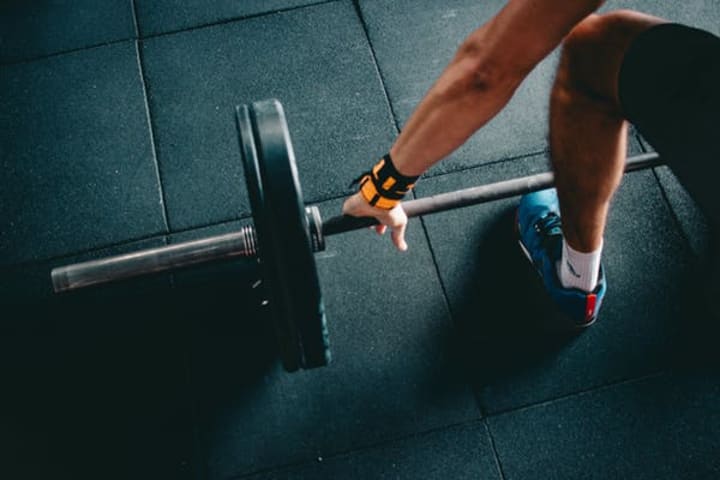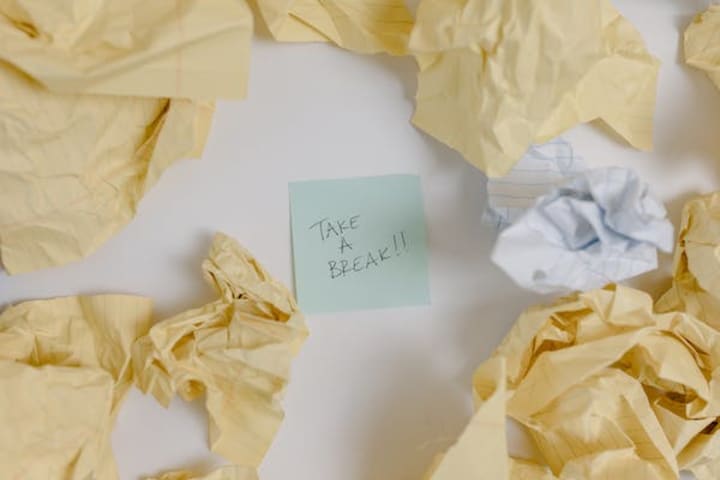How to Relax Myself
Relaxation Tips

Relaxation refers to a state of calmness and freedom from stress, tension, or anxiety. It is important for both mental and physical health, as stress and tension can lead to a variety of negative health outcomes such as high blood pressure, heart disease, and mental health problems.
There are many ways to promote relaxation, including deep breathing, meditation, exercise, progressive muscle relaxation, taking breaks, connecting with nature, practicing mindfulness, getting enough sleep, practicing yoga, and listening to music.
It's important to incorporate relaxation techniques into your daily routine to help reduce stress and promote overall well-being. It can also be helpful to identify sources of stress in your life and take steps to address them, such as prioritizing self-care, setting boundaries, and seeking support from loved ones or mental health professionals if needed.
1.Deep breathing

Deep breathing is a relaxation technique that involves taking slow, deep breaths from the diaphragm to promote relaxation and reduce stress. When we're stressed or anxious, our breathing tends to become shallow and rapid, which can increase feelings of tension and anxiety.
To practice deep breathing, find a comfortable seated or lying position and place one hand on your chest and the other hand on your belly. Take a slow, deep breath in through your nose, allowing your belly to expand as you inhale. Hold the breath for a few seconds, then slowly exhale through your mouth, allowing your belly to deflate as you exhale. Repeat this process for several minutes, focusing on your breath and trying to let go of any distracting thoughts.
Deep breathing can be done at any time and in any place, making it a convenient and effective relaxation technique. It can also be helpful to incorporate deep breathing into your daily routine, such as before bed or during a break at work, to promote relaxation and reduce stress levels over time.
2.Exercise

Exercise is a great way to promote relaxation and reduce stress. When we exercise, our bodies release endorphins, which are natural chemicals that promote feelings of well-being and happiness. Regular exercise can also help reduce muscle tension, improve sleep quality, and boost overall physical health.
There are many different types of exercise you can try, depending on your interests and fitness level. Some examples include:
- Cardiovascular exercise: Activities that get your heart rate up, such as running, biking, or swimming.
- Strength training: Exercises that use resistance, such as weightlifting or bodyweight exercises, to build strength and muscle.
- Yoga: A type of exercise that combines physical movement with breathing techniques and meditation to promote relaxation and reduce stress.
- Pilates: A low-impact form of exercise that focuses on building core strength and improving flexibility.
- Tai Chi: A Chinese martial art that combines slow, gentle movements with deep breathing and meditation to promote relaxation and reduce stress.
To get the most benefits from exercise, it's important to find an activity that you enjoy and can stick with over time.
3.Take a break

Take a short break from your work or activities to give your mind and body a chance to recharge.Taking a break is an important way to promote relaxation and reduce stress. When we take a break, we give our minds and bodies a chance to rest and recharge, which can help improve focus, productivity, and overall well-being.
There are many different ways to take a break, depending on your preferences and schedule. Some examples include:
- Take a walk: Going for a short walk can help clear your mind and get your body moving.
- Practice mindfulness: Take a few minutes to practice mindfulness by focusing on your breath, senses, or environment.
- Listen to music: Listening to calming music can help reduce stress and promote relaxation.
- Take a nap: If you're feeling tired or sluggish, taking a short nap can help you feel refreshed and energized.
- Socialize: Spend some time with friends or family members, either in person or virtually
4.Get enough sleep

Getting enough sleep is essential for overall health and well-being. Sleep is a natural process that allows our bodies to rest and restore themselves. When we sleep, our brains consolidate memories, our bodies repair tissues and organs, and our immune system strengthens itself.
Here are some tips for getting enough sleep:
- Stick to a regular sleep schedule: Go to bed and wake up at the same time every day, even on weekends.
- Create a relaxing bedtime routine: Take a warm bath, read a book, or listen to calming music before going to bed.
- Avoid stimulating activities before bedtime: Avoid using electronic devices or engaging in activities that are mentally or physically stimulating before bedtime.
- Create a sleep-conducive environment: Make sure your bedroom is dark, quiet, and cool. Consider using earplugs or an eye mask if necessary.
- Limit caffeine and alcohol intake: Avoid consuming caffeine and alcohol in the evening, as they can disrupt your sleep.
- Exercise regularly: Regular exercise can help you fall asleep faster and sleep more soundly. However, avoid exercising close to bedtime.
- Manage stress: Practice relaxation techniques such as meditation, deep breathing, or yoga to manage stress and promote better sleep.
By following these tips, you can create a healthy sleep routine and get enough sleep to feel rested and energized throughout the day.
5.Listen to music

Listening to music is a popular pastime enjoyed by people of all ages and cultures around the world. It involves the act of listening to sound vibrations that are produced by various instruments or electronic devices, such as speakers or headphones, and can evoke a range of emotions and feelings in the listener.
Music has been shown to have numerous benefits, such as reducing stress and anxiety, improving mood and cognitive function, and enhancing physical performance during exercise. It can also be a powerful tool for self-expression and creativity, allowing individuals to connect with themselves and others in a meaningful way.
With the advent of digital streaming services, accessing music has become easier and more convenient than ever before. People can listen to their favorite songs and discover new artists and genres at the click of a button, making music a ubiquitous part of daily life for many.
About the Creator
Enjoy Being Yourself
Being yourself means you like who you are. Being yourself means living life how you wanted to live it, regardless of other peoples' opinions. And it just means you respect yourself.






Comments
There are no comments for this story
Be the first to respond and start the conversation.